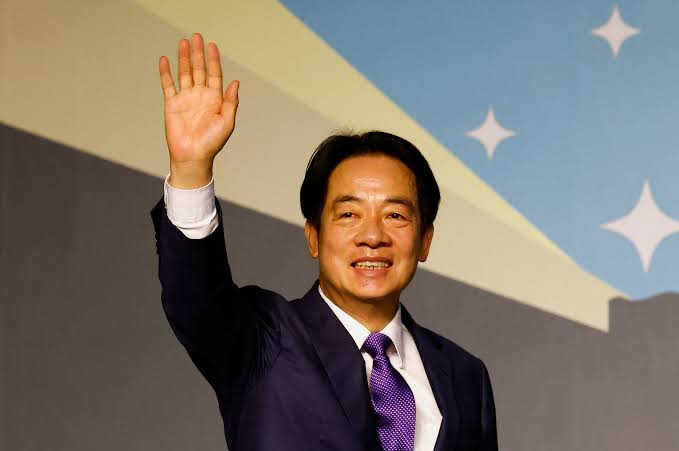The ruling Democratic Progressive Party (DPP) secured a historic third term on Saturday, January 13, as Vice President Lai Ching-te won Taiwan presidential election with 40.05 per cent of the vote.
Lai, along with his running mate Hsiao Bi-khim – Taiwan’s former representative to the United States – won a total of more than 5.5 million votes.
The electoral system of Taiwan is based on first-past-the-post voting, awarding the victory to the presidential-VP pairing with the highest percentage of votes.
Turnout on the self-ruled island was put at more than 70 per cent with some 19.5 million Taiwanese eligible to vote.
A favourite to succeed incumbent President Tsai Ing-wen, who is due to step down at the end of her second consecutive term in May, Lai’s win was in line with previous forecasts.
Lai ran against the main opposition party’s – the Kuomintang – candidate Hou Yu-ih, who came in a close second with 33.5 per cent of the vote and the Taiwan People’s Party’s Ko Wen-Je who trailed both candidates with only 26.5 per cent.
Speaking as last results trickled in, Lai told a press conference that the election was a victory for the democracy of Taiwan.
“We are telling the international community that between democracy and authoritarianism, we will stand on the side of democracy,” he said.
READ ALSO: China expels 9 army officials from parliament
In an election framed as a choice between “peace and war” by China, which deems the DPP’s governance as “incompatible” with cross-strait peace, Lai’s victory comes at a crucial moment amid rising tensions between Taipei and Beijing.
Claiming the island as part of its territory, Beijing responded to the election results by saying that “reunification” with Taiwan is still “inevitable”.
The vote “will not impede the inevitable trend of China’s reunification”, Beijing’s Taiwan Affairs Office spokesperson, Chen Binhua, said in a statement.
President Joe Biden reiterated that the United States is “not supporting” Taiwan’s independence, after Taiwanese voters rebuffed China and gave the ruling party a third presidential term.
Lai was sworn in as vice president in 2020 when Tsai won the presidential election.
Labelled a separatist by Beijing, the winner in Taiwan’s presidential race has promised to stick to Tsai’s policy of maintaining the status quo, which avoids open declarations of independence while rejecting China’s sovereignty claims.
Lai said: “As president, I have an important responsibility to maintain peace and stability in the Taiwan Strait.
“I will act in accordance with our democratic and free constitutional order in a manner that is balanced and maintains the cross-strait status quo under the principles of dignity and parity.”
He has said he hopes for a reopening of dialogue between China and Taiwan, following almost eight years of Beijing’s near-complete refusal to communicate with leaders of the self-governing island.
But he also pledged to build up the island’s military defence, indicating that he harbours no illusions.
“At the same time, we are also determined to safeguard Taiwan from continuing threats and intimidation from China,” he said.
Lai told the press conference that the people of Taiwan have “successfully resisted efforts from external forces to influence this election”.
- Fubara: Wike shouldn’t take God’s place - May 7, 2024
- Banks begin charges on cash deposits above N500,000 - May 7, 2024
- FIRS chair tasks African tax administrators on local solutions - May 6, 2024










